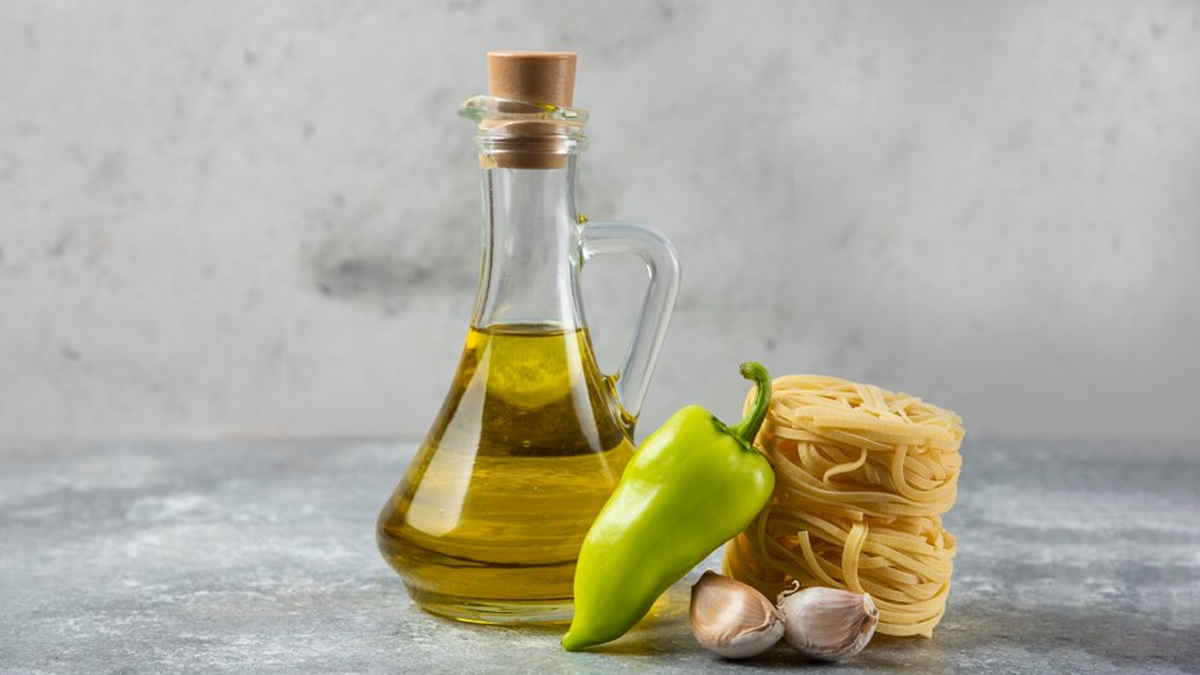
In today’s fast-paced world where deep-fried indulgences and processed foods are an easy grab, understanding how much oil we should ideally consume daily is crucial to maintaining long-term health. While our bodies need some fats to function properly, excessive oil intake can pave the way to obesity, heart disease, and other chronic conditions.
Table of Content:-
To cut through the confusion, we spoke to Dr. Shrey Kumar Srivastav, General Physician and Senior Consultant at Sharda Hospital, Noida, who sheds light on the ideal daily oil consumption and how to make healthier choices when it comes to dietary fats.
Why Oil Matters in Our Diet
“Oils are essential as they provide fatty acids that our body cannot produce on its own,” says Dr. Srivastav. “They also help absorb fat-soluble vitamins like A, D, E, and K. However, the quantity and quality of oil matter significantly.”
Not all oils are created equal. Saturated fats, trans fats, and refined oils can contribute to high cholesterol levels and inflammation. On the other hand, oils rich in unsaturated fats — like olive oil, mustard oil, or cold-pressed seed oils — can support heart and brain health when consumed in moderation.
Also Read: National Dengue Day 2025: Expert Shares Go-To Guide To Quick Dengue Recovery!

So, How Much Oil Is Too Much?
According to Dr. Srivastav, the ideal oil consumption for a healthy adult should be between 3 to 5 teaspoons (15 to 25 ml) per day. This recommendation includes oil used in cooking as well as hidden oils found in packaged or processed foods.
“Most people unknowingly exceed this limit, especially when consuming fried foods, bakery products, or eating out frequently,” he adds. “Even a single meal from a restaurant can often surpass the daily recommended fat intake.”
Tips for Smarter Oil Consumption
To keep your health in check without giving up the taste, Dr. Srivastav offers the following practical tips:
Measure Your Oil: Avoid free-pouring oil while cooking. Use measuring spoons to control quantity.
Choose Wisely: Opt for oils with a good balance of omega-3 and omega-6 fatty acids. Rotate between oils like olive, mustard, sunflower, and groundnut to gain a broader nutrient profile.
Avoid Reusing Oil: Reheating or reusing oil (especially for frying) can create harmful free radicals. Always discard used oil responsibly.
Cook Light: Prefer steaming, grilling, or sautéing over deep frying. These methods use less oil and preserve more nutrients.
Read Labels: Check food labels for “partially hydrogenated oils” or “trans fats,” and avoid products containing them.

Also Read: Miscarriage And IVF: Timing And Considerations For Your Next Steps
Special Considerations for Specific Diets
Those with underlying conditions like hypertension, diabetes, or obesity should be extra cautious. “Patients with cardiovascular risks should aim for the lower end of the range — around 3 teaspoons a day — and emphasise oils that are high in monounsaturated fats, like olive oil,” says Dr. Srivastav.
Bottomline
Moderation and mindfulness are key. Oils are not the enemy, but their overuse, especially of the wrong kind, can silently harm your health over time. By sticking to recommended limits and making smarter choices, you can enjoy the flavour and health benefits of oils without tipping the balance.
Also watch this video
How we keep this article up to date:
We work with experts and keep a close eye on the latest in health and wellness. Whenever there is a new research or helpful information, we update our articles with accurate and useful advice.
Current Version